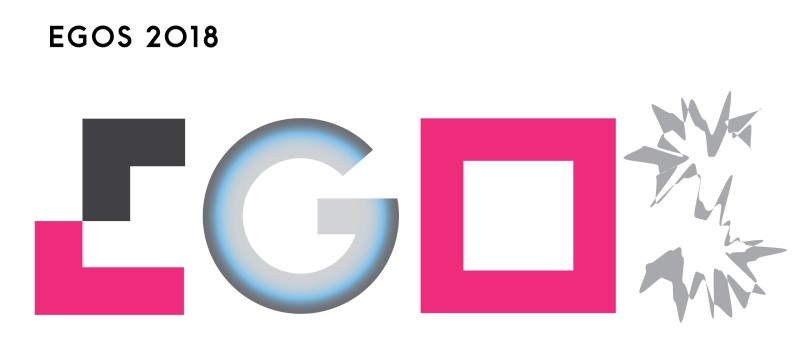Sub-theme 19: Organizing Identities: From the Mundane to the Surprising
Call for Papers
Organizations can be both sites for the surprising and the mundane. Organizational routines can provide a sense of security
and biographical continuity (Knights & Willmott, 1999). On the other hand, organizational change can require individuals
to revise and reconstruct self-stories and repertories of behaviours (Ibarra and Barbulescu, 2010). Whether surprising or
routine, processes of organizing are enabled and constrained by identity practices and processes (Brown & Coupland, 2015).
Identities are embedded in context, shaping and shaped by the places in which they are enacted (Cutcher, 2014). Identity work
is also temporal work; it takes place in the present but individuals draw also on discursive resources from their remembered
past and future projected selves (Brown, 2015).
Bodies can also surprise. There can be a disconnect between
what we want to do and what our bodies will allow us to do. As we age we can be surprised by the body that looks back at us
in the mirror. There are times when we realise the way that we see ourselves is not how others see us. These ‘critical moments’
(Obodaru, 2012) remind us of the embodied nature of identity. By exploring the corporeality of lived experience, feminist
and queer theorists point to the limitations of discursive approaches to identity, highlighting its performative aspects (Butler,
2004). From this perspective, identities are dramaturgical performances of the self, for both the self and other audiences
(Down & Reveley, 2009; Goffman, 1959). These relational aspects of identity work highlight the role of both the symbolic
and material in identity formation and maintenance (Hardy & Thomas, 2015); to which others have added that such processes
have also a psychodynamic dimension (Driver, 2015; Fraher & Gabriel, 2014).
In this sub-theme, we want
to develop our understanding of the constructed, relational and situational characteristics of identity practices and processes
(Coupland & Brown, 2012). We are particularly interested in papers that explore the entanglement of the discursive, material
and symbolic. In keeping with the theme of the Colloquium, we seek papers that reflect on ‘surprise’ and its opposite ‘mundaneness’
and their implications for identity practices, processes and outcomes.
We invite papers that, inter alia,
explore:
Identity and organizing. Ongoing identity work is woven into the very fabric of organizing (McInnes & Corlett, 2012). How do organizations facilitate, control or hinder identity work? How do individual-collective processes of identification impact on organizing? How do organizational actors reflexively acknowledge the disciplinary processes of organizing?
Spatio-temporal identity work. Identity work takes place in time and space. What are the interrelationships between time, space and identity? How do time and space enable or constrain identity work?
Embodiment, materiality and identity. How do identity categories such as age, race, sexuality and gender intersect? How do bodies demonstrate the material limits of identity work? What roles do material artefacts and other symbols play in identity work?
Psychodynamics and identity. How can the unconscious aspects of identities be researched? What can a focus on the unconscious contribute to our understanding of identities and identity construction processes?
Identity outcomes. What are the political and material outcomes of discursive identity work? How can identity work help individuals cope with change, resist constraints and manage stigmatization? What are the implications of identity clashes and conflicts for individual and collective well-being?
References
- Abbott, A. (1988): The System of Professions: An Essay on the Division of Expert Labor. Chicago: University of Chicago Press.
- Brown, A.D. (2015): “Identities and Identity Work in Organizations.” International Journal of Management Reviews, 17 (1), 20–40.
- Brown, A.D., & Coupland, C. (2015): “Identity Threats, Identity Work and Elite Professionals.” Organization Studies, 36 (10), 1315–1336.
- Butler, J. (2004): Undoing Gender. New York, NY: Routledge.
- Coupland, C., & Brown, A.D. (2012): “Identities in action: Processes and outcomes.” Scandinavian Journal of Management, 28 (1), 1–4.
- Cutcher, L. (2014): “Bringing Back the Bank: Local Renewal and Agency through Community Banking.” Organization Studies, 35 (1), 103–119.
- Down, S., & Reveley, J. (2009): Between narration and interaction: situating first-line supervisor identity work.” Human Relations, 62 (3), 379–401.
- Driver, M. (2015): “How trust functions in the context of identity work.” Human Relations, 68 (6), 899–923.
- Fraher, A.L., & Gabriel, Y. (2014): “Dreaming of flying when grounded: Occupational identity and occupational fantasies of furloughed airline pilots.” Journal of Management Studies, 51 (6), 926–951.
- Goffman, E. (1959): The Presentation of Self in Everyday Life. New York: Anchor Books.
- Hardy, C., & Thomas, R. (2015): “Discourse in a material world.” Journal of Management Studies, 52 (5), 680–696.
- Ibarra, H., & Barbulescu, R. (2010): “Identity as narrative: Prevalence, effectiveness, and consequences of narrative identity work in macro work role transitions.” Academy of Management Review, 35 (1), 135–154.
- Knights, D., & Willmott, H. (1999): Management Lives: Power and Identity in Work Organizations. London: SAGE Publications.
- McInnes, P., & Corlett, S. (2012): “Conversational identity work in everyday interaction.” Scandinavian Journal of Management, 28 (1), 27–38.
- Obodaru, O. (2012): “The self not taken: How alternative selves develop and how they influence our professional lives.” Academy of Management Review, 37 (1), 34–57.


